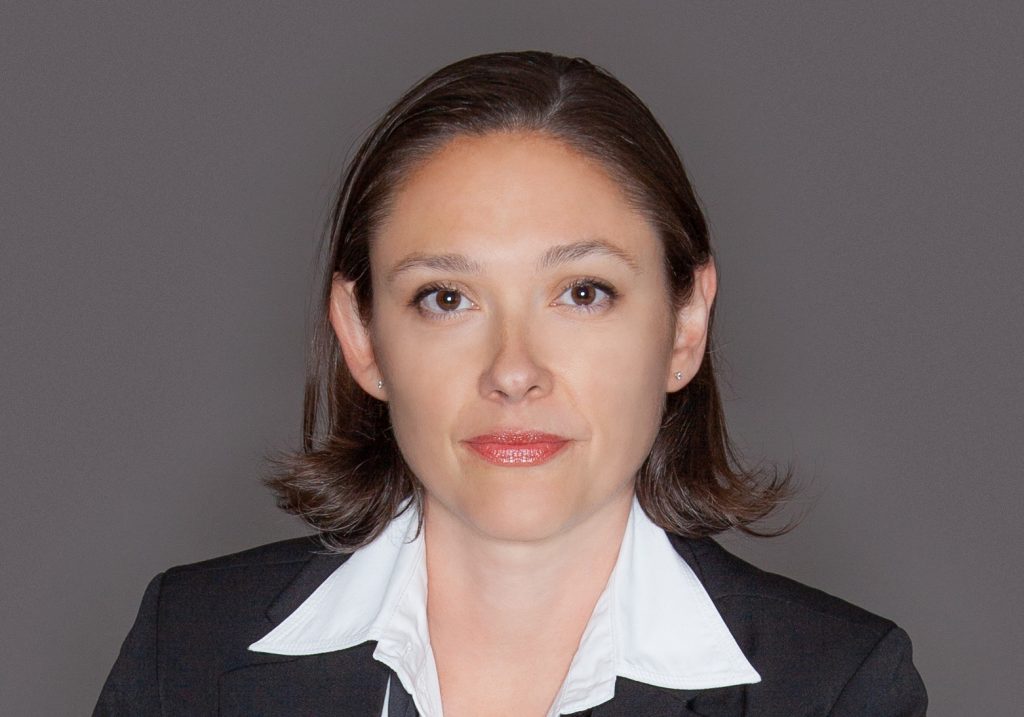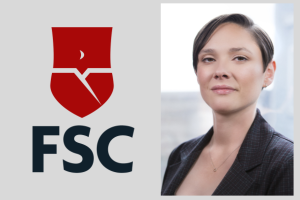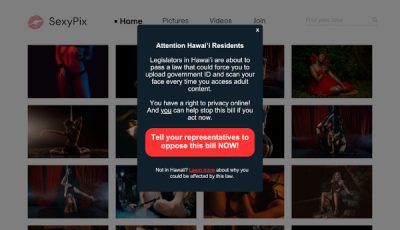FSC’s Boden – “Adult Industry Under Attack”
YNOT is excited to share an interview with Alison Boden, the new Executive Director of The Free Speech Coalition (FSC), an organization we feel very passionate about. In fact, Connor Young, our CEO and the co-owner of YNOT, served on the board several years so you know they’re in our corner.
If you’re not exactly sure what the FSC does and why you may want to consider being a member, they build relationships with Congress to make sure our voices are heard, defend our rights all the way to the supreme court, help members find legal adult-friendly representation, accounting and professional services, and invest in PASS – the program that standardizes and monitors STI and infectious disease testing for the industry. And that’s just scratching the surface.
Boden, who said that the industry is under attack in a way we haven’t seen in more than 20 years, shared her vision and thoughts on how she will lead the FSC to combat those who want to see an end to our livelihoods.
What is your background and what brought you to the Free Speech Coalition?
I got my start in the adult industry when I opened a sex toy home party business in 2003. I’ve always felt strongly about sexual freedom and education, so it made sense to combine vibrator sales with workshops about how to use them. That experience helped me recognize my calling and I’ve been working in the adult industry in various capacities ever since (product management, marketing, technology). My former employers include Adult Empire, Gamelink, Videobox, and Kink.com, where I spent the last 11 years. I also serve Pineapple Support as its board president.
Anyone who’s worked in the industry is aware of the enormous challenges we’ve always faced, but right now we’re under attack in a way that I haven’t seen in the nearly 20 years I’ve worked in adult. It’s very clear to me that we need a strong trade organization to fight for our rights and I intend to build FSC into a major political force and business resource. One that not only defends the industry and pushes for the change we need, but also provides our members with the tools to grow their businesses.
What challenges will be the primary areas of concern for FSC in the months and years ahead?
I think that there are an increasing number of issues facing the adult industry in the short and medium term. As the culture wars in the US gain traction, our industry is a convenient scapegoat. When absurd claims that porn is somehow responsible for the mass shooting deaths of elementary school students are not just being made by religious extremists, but Senators and Governors, it’s cause for alarm.
At this moment, there are dozens of bills which directly or indirectly target our industry moving quickly through state legislatures and Congress. A prime example of this is Louisiana’s HB142 bill, which allows people to sue adult platforms if children access them. We expect to see more legislation of this nature attacking the industry from every angle.
We’re seeing a proliferation of laws at the state level that seek to restrict or regulate sexually explicit expression in one way or another, along with a continuation of the campaign to label adult entertainment a “public health crisis.” Whether or not the bills these legislatures cook up are deemed constitutional by the courts in the end, how concerned are you about these trends?
Everyone should be extremely concerned. Using civil lawsuits to bankrupt your opponents is extremely effective. In fact, it bears more than a passing similarity to the efforts made by the FBI to bankrupt adult producers in the 80’s and 90’s when they would launch simultaneous cases in multiple states against a single company. The burden of defense was so huge that companies would be forced to plead guilty or go out of business.
The fact that the venue for these battles is in the courts provides a major advantage to the anti-porn groups, because they have millions of dollars to spend on legal cases and we don’t. And whether they win or lose, they’re able to use the cases to raise even more money.

What can the industry do to push back on the narrative that our products are driving a public health crisis, encouraging human trafficking and the other claims?
It’s a constant battle. We must always correct journalists, and sometimes our allies, from unwittingly spreading false information. In an ideal world where FSC is adequately funded, we could be front and center with our own campaign about what science actually shows about porn. As it is, we do a tremendous amount of education with journalists, who can play a huge role in what the public narrative is.
How do you answer to former porn performers who speak out against the industry? They can be a strong opponent and I’m curious how you deal with their arguments which can be very convincing.
While I think we need to be skeptical of anyone with a default anti-industry or anti-sex work agenda, the last several years have shown that many performers – past and current – have valid concerns about the way they’re treated on set, and we should take them seriously.
I also think that even outlandish claims can seem believable to the public because they don’t understand the reality of working in this industry. The more we can communicate the real story and show that sex work truly is a job, the more difficult it will be to spread misinformation about what we do.
What do you think it will take to change attitudes toward the adult industry? What can the adult industry do about it, anything?
We have been changing hearts and minds, and a lot of that credit goes to the performers, models and creators. They’ve been standing up and speaking about what their lives are like, raising the issues critical to them, protesting discrimination, organizing politically, and calling for systemic change. That’s had a tremendous effect on how the world views our industry, and we need to support them.
What ways does FSC get their word out to the mainstream, not just the community?
We engage with the media on an almost daily basis. That means constantly reaching out and educating journalists, drafting positions and statements, correcting misinformation, appearing for radio and TV interviews, and writing opinion pieces. A lot of the work that FSC does is behind the scenes, talking with legislators, writers, and allies to help people understand our industry, and to make sure that people understand the facts.
Tell us about a positive experience or success you’ve personally had in creating change in the adult industry.
No real change comes from a single person. Changing hearts and minds is inherently a collaborative effort. If I’ve had success in creating change, it’s by listening and supporting those around me. In any successful effort, I expect to learn more than teach.
I’ve been in the industry for a long time and thought we should get rid of phthalates and adopt better consent practices before those were widely held positions. But making those changes requires you to work bit by bit, in small conversations and big business decisions. So, I don’t think in terms of personal success, but in building critical mass for positive change.
What is your biggest source of pride in working for the FSC?
It’s an incredible honor to take the helm of the organization that defends the rights of the industry I love so much. The FSC has a track record of success – defeating bills like California’s Prop 60, winning against the US government at the Supreme Court, stepping in to create PASS to protect performers when AIM was destroyed – and the opportunity to stand on the shoulders of giants to help our industry navigate the serious challenges we face is humbling and inspiring.
—
To become a member of The Free Speech Coalition head to their website at FreeSpeechCoaltion.com.













